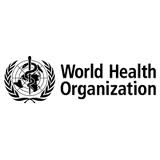The World Health Organization (WHO)’s Health 2020 framework is a bureaucratic vision of ‘people-centred’ healthcare for all. It’s also logically flawed and reliant on outdated information and technical fixes.
The WHO’s vision for Europe
Unlike other WHO strategies, such as the WHO’s ‘meta-programme’ launched in 2004, the Global Strategy on Diet, Physical Activity and Health, Health 2020 is an overarching set of policies intended to, “Act as a reframing of many such commitments within a coherent and visionary approach, overcoming fragmentation and facilitating implementation”.
This bureaucratic language reflects a highly bureaucratic view of healthcare, designed to serve ongoing globalisation. The two strategic objectives of Health 2020 are:
- “Improving health for all and reducing heath inequalities”, and
- “Improving leadership and participatory governance for health”
As presented in Health 2020, these are top-down approaches that will need to rely heavily on government intervention for success. Underlining this, Box 6 on page 34 of the full Health 2020 document includes the, “Use [of] the system of taxes and transfers to promote equity,” among many other strategies.
Individual vs. state
It will be interesting to see how the European Union (EU) Member States that go on to implement Health 2020 policies will square the circle of this highly statist approach, on the one hand, with the more ‘community oriented’ aspects of Health 2020, on the other. Page 36 of Health 2020 refers to, “An ongoing transformation of governance from a state-centred to a collaborative model” involving a range of stakeholders, and the document is full of fine words about, “Empowering people”, “People-centred health systems”, “Creating resilient communities and supportive environments” and something called a, “Whole-of-society approach”.
Given the top-down flavour of Health 2020’s strategic objectives, we fear that people will only be ‘empowered’ as far as Member State governments allow them to be. And, if the limitations on commercial free speech locked into the EU’s Nutrition and Health Claims Regulation are anything to go by, empowerment and individual freedom will be increasingly restricted.
No place for natural healthcare
Just as worrying from our point of view is the complete lack of recognition given to non-mainstream approaches to healthcare, other than brief mentions of the importance of diet and lifestyle in the context of the Global Strategy on Diet, Physical Activity and Health. Even here, some of the policies are misguided or out of date, such as a focus on cholesterol and saturated fat reduction and over-reliance on whole grains.
Technological fixes are the order of the day, particularly vaccines, and Health 2020 takes time out to attack, “The increasing popularity of “alternative” practices, many with no proven efficacy”. Particular ire is reserved for those who, “Treat infections with sham “medicines””. It’s a depressing reminder of how the WHO’s strategic direction has changed since its stewardship was handed over to Dr Margaret Chan. In 2007 after all, just prior to the changeover, the WHO asked ANH-Intl to write a report on natural methods to combat infectious diseases. Does this hardened language signal a reconsideration of the WHO’s position on traditional medicine?
The policy that eats itself?
We’re reassured to be in general agreement with the WHO’s definition of health as, “A state of complete physical, mental and social well-being and not merely the absence of disease or infirmity”. Health 2020 notes delightedly that the healthcare sector is, “Now one of the largest economic sectors in every medium- and high-income country...Its importance will continue to grow”. But healthy people don’t require health systems, at least of the type envisaged by the WHO! So, if the WHO is successful in its stated aims, and everyone attains a state of perfect health through community-centred empowerment, the medical/pharmaceutical ‘health industry’ establishment will wither and die – along with the WHO. We can only presume that the WHO is predicting that Health 2020 will fail to achieve its goals: a necessity for survival both of the WHO, and of the industries it currently holds dear.
It never fails to amaze us that the WHO and the EU continue to deliver more of the same, when they know the track record of success is so sparse. For example, another major collaborative European initiative, the EU’s 6-year nutrition and anti-obesity strategy, has recently come to an end. While it delivered on policy, in terms of its main objective —reducing obesity — it failed dismally. Why should Health 2020 be any different?
A more fitting definition of ‘health’ for the WHO?
Perhaps the WHO should come clean and change its definition of ‘health’ to more accurately reflect its policies. We came up with a couple of options:
- “A given state of physical, physiological, psychological and emotional function that is the responsibility of the medical profession or government, and the management of which relies on principally on surgery or interventions with new-to-nature, patented pharmaceuticals and vaccines”
- “A state of total confusion about what constitutes health and wellbeing and how to obtain it, leading to reliance on bloated, state-led, pharmaceutical-based healthcare systems”
Call to action
- True, individual ‘empowerment’ in healthcare means taking control of, and responsibility for, one’s own health rather than relying on the type of vast, inefficient and misguided governmental healthcare systems promoted by the WHO. The best way to start this process – if you’re not already there! – is to make rational diet and lifestyle choices. Our Food4Health campaign page has plenty of ideas in this direction, and keep an eye out for our exciting new health empowerment initiative to be launched next year!
- Contrary to the vaccine-led vision of the WHO, by far the best way of avoiding infectious diseases is to nurture your own incredibly sophisticated innate, natural immune system. Read the report we wrote for a more open-minded WHO, and, as the northern hemisphere moves toward winter, don’t forget to take at least 2000 IU (10 mcg) vitamin D daily!








Comments
your voice counts
There are currently no comments on this post.
Your voice counts
We welcome your comments and are very interested in your point of view, but we ask that you keep them relevant to the article, that they be civil and without commercial links. All comments are moderated prior to being published. We reserve the right to edit or not publish comments that we consider abusive or offensive.
There is extra content here from a third party provider. You will be unable to see this content unless you agree to allow Content Cookies. Cookie Preferences